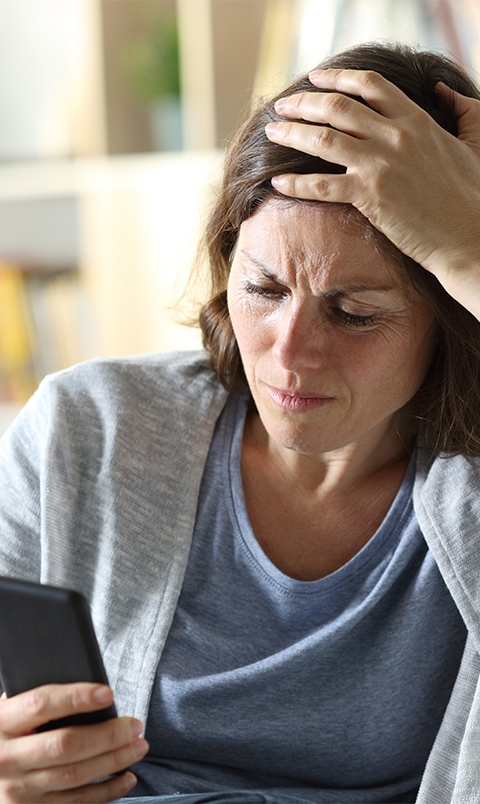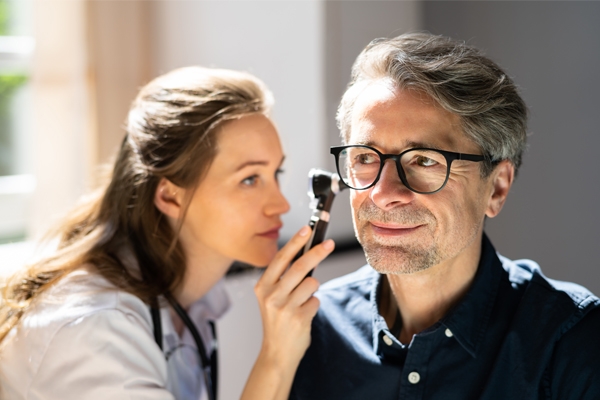Learn Nine Surprising Causes of Hearing Loss


Learn Nine Surprising Causes of Hearing Loss
5 min
Published January 7, 2025
9 Surprising Causes of Hearing Loss
Several things can impact a person’s ability to hear. One of the most obvious causes of hearing loss is prolonged exposure to excessive noise or a single traumatic event such as an explosion. However, most people don't realize many things can cause hearing loss, from injuries to various illnesses. Understanding what can affect your hearing ability gives you more control over your listening environment. Below, the hearing experts at AudioNova discuss the most surprising causes of hearing loss and how to avoid them when possible. Reach out to the clinical team at AudioNova today to start your journey towards better hearing health.
Stress
Hearing care professionals understand there’s a link between stress and tinnitus. Hypertension, in combination with severe stress, can cause hemorrhaging in the ears, which can cause either temporary or permanent hearing loss. Fortunately, there are several ways to relieve the symptoms of hearing loss and stress-induced tinnitus. If you want to relieve the unpleasant buzzing or ringing in your ears, hearing experts recommend:
Reducing caffeine intake
Exercising and maintaining a healthy diet
Focusing on a simple task like cleaning when you’re feeling stressed
Discussing your concerns with a friend, family member, or therapist
Too Much Exercise
For most patients, moderate exercise is recommended to promote better overall health, including hearing. However, participating in too much physical exercise impairs your hearing. Vigorous exercise can cause a wide range of hearing problems, including dizziness, tinnitus, or even damage to the membranes in your inner ear. Fortunately, this type of hearing loss is usually temporary and should subside with proper rest.
Medication
There are side effects to every prescription medication available, but did you know one of the potential ones is hearing loss? It’s rarely mentioned in the long list of side effects at the end of pharmaceutical commercials, but some medications can damage the cells inside your ears. It’s important to discuss all the potential side effects of medications you’re prescribed with your physician. If hearing loss is one of them, you can ask them about an alternative.
Poor Diet
Severely overweight individuals or those suffering from dietary disorders are much more likely to develop hearing loss. Poor dietary practices can interfere with blood flow through the body and ears, including consuming excessive fats and sugars and insufficient vital nutrients.
Allergies
Allergies are common for many individuals at different times throughout the year. They are usually accompanied by congestion, watery and itchy eyes, runny nose, sneezing, or a scratchy throat. However, allergic reactions can also block the ear canal with fluid and cause an infection. Hearing loss caused by an ear infection typically doesn't last long, but it's important to ensure it's properly treated before it develops into something more permanent.
Lack of Sleep
Not getting enough sleep at night can affect your overall health and well-being, but did you know it can also impair hearing? One of the most common causes of tinnitus spikes is poor sleep.
Smoking
Smokers are at a considerably higher risk of developing noise-induced hearing loss. Even former smokers have a slightly higher risk of hearing damage because smoking irritates the lining of the middle ear. The nicotine in cigarettes prevents the neurotransmitters from sending important auditory information to the brain.
Illness
Several illnesses can impact a person's hearing, including influenza, meningitis, and measles. Children are at a higher risk of this type of hearing loss, and in rare cases, it can cause permanent damage. A doctor should address all signs of hearing loss to ensure something more serious isn’t going on.
Diabetes
According to the American Diabetes Association, there’s a significant link between diabetes and hearing loss. In one study, hearing loss was twice as common in people with diabetes compared to those without. While type 2 diabetes can be as simple as watching what you eat for some individuals, it’s essential for type 1 diabetes patients to regularly check their glucose levels and visit a physician if they experience any symptoms of hearing loss.
Connect With the Hearing Experts at AudioNova
At AudioNova, we prioritize your ability to hear the world around you clearly. You can live your best life when your hearing health is in check. Take a proactive approach to your hearing by scheduling a one-on-one consultation with our hearing experts today.




